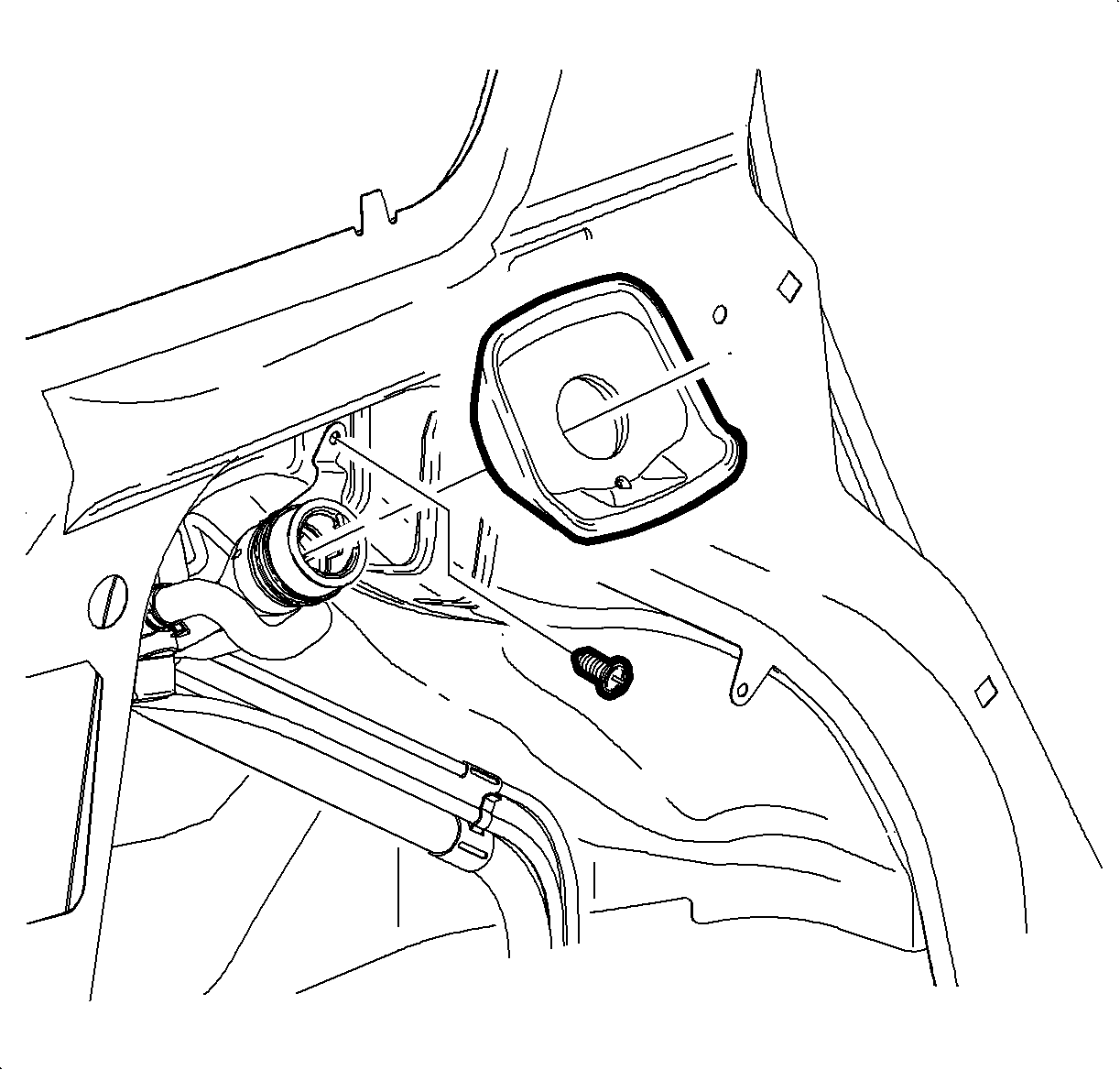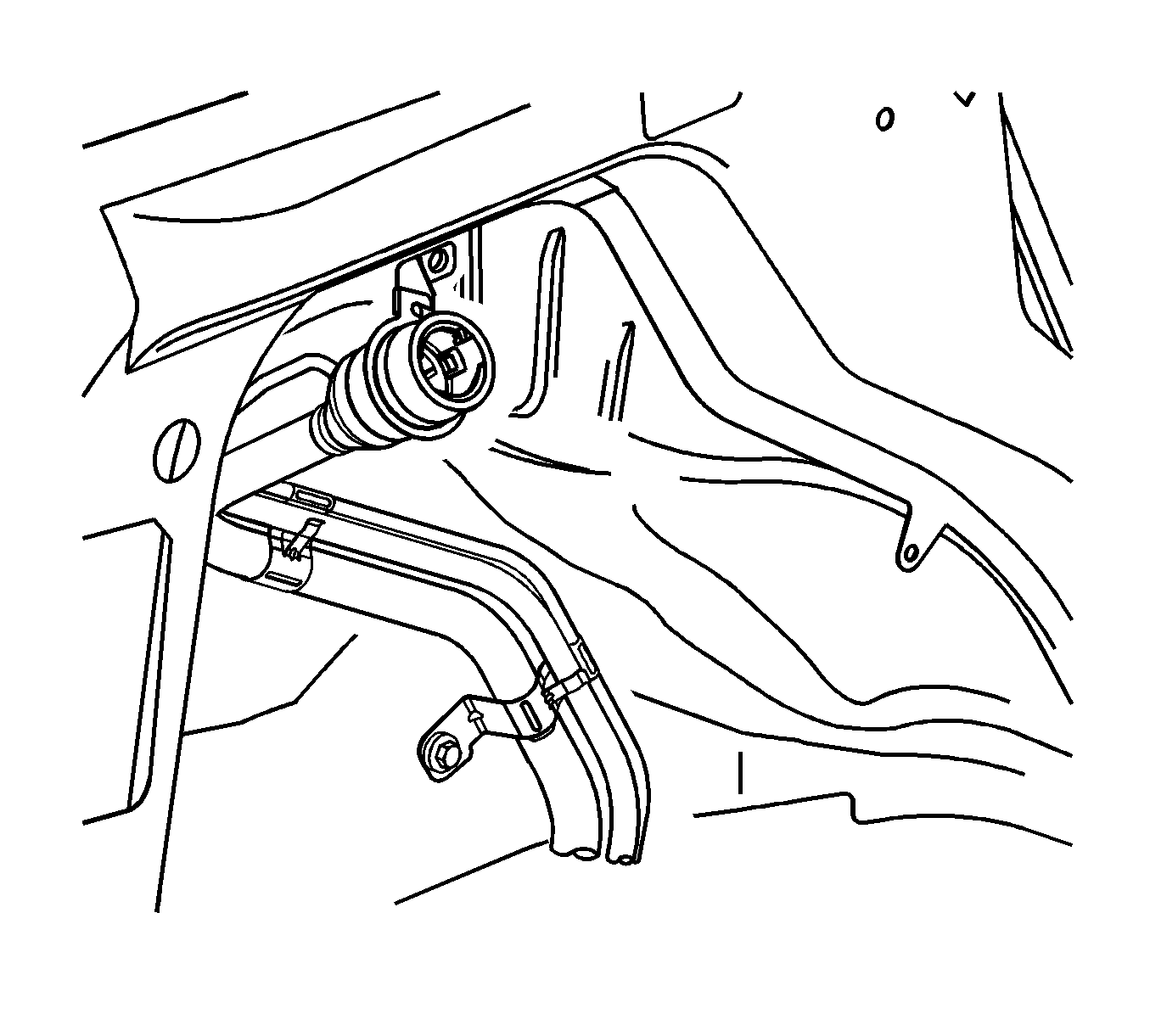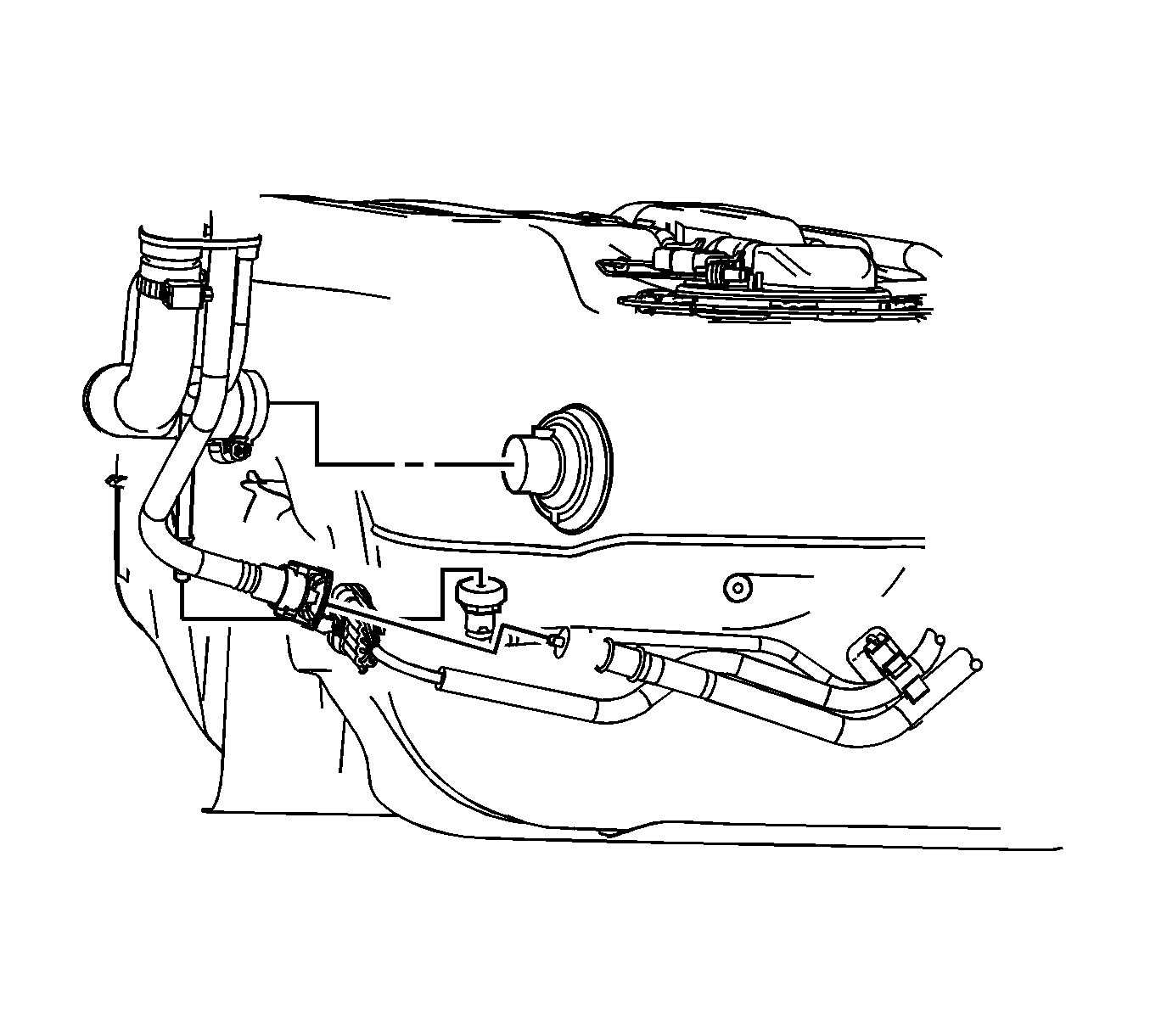For 1990-2009 cars only
Removal Procedure
- Ensure that the fuel level in the tank is less than 1/4 full. If necessary, drain the fuel tank to at least this level. Refer to Fuel Tank Draining .
- Disconnect the negative battery cable. Refer to Battery Negative Cable Disconnection and Connection .
- Remove the fuel filler cap.
- Push/pry the closeout grommet to expose the fuel fill neck attachment bolt. Remove the fill neck attachment bolt.
- Raise and support the vehicle . Refer to Lifting and Jacking the Vehicle .
- Remove the right rear wheel and tire. Refer to Tire and Wheel Removal and Installation .
- Remove the right rear wheelhouse inner liner. Refer to Rear Wheelhouse Panel Liner Replacement .
- Remove the fuel filler pipe intermediate bracket bolt.
- Disengage the fuel filler neck from the support bracket by moving the fuel filter neck up and to the left, toward the rear of the vehicle.
- Cut the tie strap from around the pipes, if required.
- Disconnect the fuel fill pipe vent tube, fresh air hose, and fuel fill hose from the fuel tank.
- Disengage the filler pipe hose from the fuel tank and remove the fuel filler pipe and rubber grommet from the vehicle.
Caution: Do not allow smoking or the use of open flames in the area where work on the fuel or EVAP system is taking place. Anytime work is being done on the fuel system, disconnect the negative battery cable, except for those tests where battery voltage is required.



Installation Procedure
- Install the rubber grommet onto the fuel filler pipe.
- Position the filler pipe into the wheel opening with the top of the pipe within the body panel opening.
- Install the fuel filler hose onto the fuel tank inlet.
- Install the fuel filler pipe intermediate bracket bolt. Do not tighten at this time.
- Lower the vehicle and install the filler pipe to upper fuel fill pipe support bracket by moving the fuel filler neck up and to the right, toward the front of the vehicle. Tighten the fuel fill pipe-to-body bolt.
- Install the fuel cap.
- Raise the vehicle to a comfortable working height.
- Tighten the hose clamp on the filler pipe-to-fuel tank connecting hose.
- Connect the fuel fill pipe vent tube and fresh air hose.
- Tighten the intermediate bracket bolt.
- Install the inner wheelhouse liner. Refer to Rear Wheelhouse Panel Liner Replacement .
- Install the wheel and tire. Refer to Tire and Wheel Removal and Installation .
- Connect the negative battery cable. Refer to Battery Negative Cable Disconnection and Connection .
- Lower the vehicle.
- Perform the Service Bay Diagnostic Test for the EVAP emission system using the scan tool. This test will verify the integrity of the vapor handling areas of the fuel system.



Notice: Refer to Fastener Notice in the Preface section.

Tighten
Tighten the bolt to 3 N·m (27 lb in).
Important: Ensure that the fuel pipe connecting hose is installed until it touches the fuel tank body. The hose clamp should be located within 13 mm (1/2 in) of the end of the connecting hose.
Tighten
Tighten the fuel fill neck-to-fuel tank clamp to 5 N·m (44 lb in).

Tighten
Tighten the bolt to 10 N·m (89 lb in).
